CPP Inclusive Growth Conference 2019
Levers for change: delivering inclusive growth - #IGConf2019
26 November 2019
9:00am–5:00pm
IET London, 2 Savoy Pl, London WC2R 0BL
About the event
Speakers
Programme
Registration
Contact
About the event
On 26 November 2019, the second edition of our annual conference took place. With almost 200 attendees throughout the day and over 40 speakers, the programme (which you will find further below) conveyed various topics with a focus on levers for change: delivering inclusive growth. Watch our highlights video with interviews including Sir Vince Cable, Caroline Freund, Bruce Katz, Lord David Sainsbury, Lord Jim O'Neill and Sunder Katwala.
Inclusive growth is one of the most pressing challenges facing advanced economies, where stagnant real wages are squeezing living standards and wealth is increasingly concentrated. Attempts to serve those ‘left behind’ continue to be in the shadow of Brexit negotiations. The need to deliver on inclusive growth is paramount and this year’s annual CPP conference was the levers of change – locally, nationally and internationally.
Levers for change: delivering inclusive growth
The current economic climate is an opportunity for change – with scope for profound questioning of the nature of global capitalism and the aspects of the current system that need to be adapted, refined, regulated or rethought entirely. This year the Centre for Progressive Policy (CPP) has designed new measures for inclusive growth and believes delivery should now be the priority. In cities, towns and villages across the country as well as across the globe people are innovating practical ways to deliver their vision for inclusive growth. Building on our six step programme on how to do local inclusive growth, key theme of this year’s conference was delivering the levers of change – locally, nationally and internationally.
About the CPP Inclusive Growth Conference 2019
Building on the inaugural Inclusive Growth Conference in 2018, the 2019 conference took place at the Institution of Engineering & Technology (IET London) located in London's Strand, a key site for progressive technological advancement since its foundation in 1871. We were joined by international, national and local leading thinkers, academics and practitioners alongside charity, business and think tank leaders as well as policy makers and key politicians. From keynote talks, discussions & debates to ideas pitching sessions, there were a wide range of formats throughout the day. Topics covered included the role of finance, health, business in society, housing and place-based skills in driving forward inclusive growth.
Key questions on the day included: How can we hardwire shared prosperity into the DNA of economic and social policymaking, creating a basis for renewed political legitimacy? What collective action can be taken to pursue our shared challenges of inclusion across advanced economies? Which countries and communities are leading the change and what can we learn from them? What needs to be delivered in key areas such as skills, social care and public health and what is the role of business in society?
Watch the individual sessions below and see CPP's Youtube channel for more events. Sign up to our newsletter to receive invitations for upcoming conferences and events.
Speakers
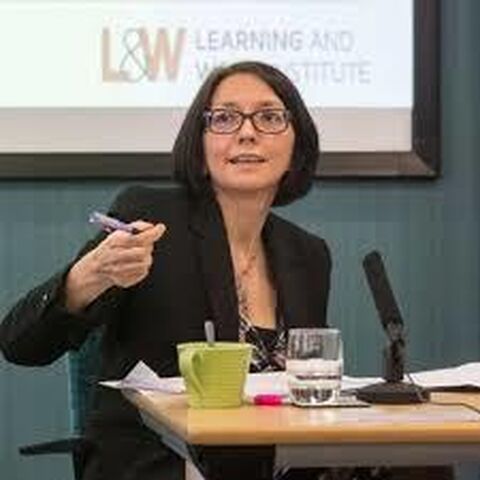
Dr Fiona Aldridge
Dr Fiona Aldridge is Director for Policy and Research at Learning and Work Institute, responsible for leading L&W’s programme of research and development, and ensuring that their work influences policy and practice, by providing a credible and influential voice on learning, skills and employment. Fiona has more than 20 years’ experience in the adult learning and skills sector, and currently works across a range of policy areas including apprenticeships and T Levels, with a particular focus on building the capacity of local areas, providers and employers to lead and respond to changes in post-16 education and skills. Since 2001, Fiona has led L&W’s series of surveys on Adult Participation in Learning, which provides a unique overview of patterns and trends in learning among adults in the UK. Fiona was involved in advising the Foresight Review into the Future for Skills and Lifelong Learning and is now working closely with DfE to support its work around career learning and the development of the National Retraining Scheme.
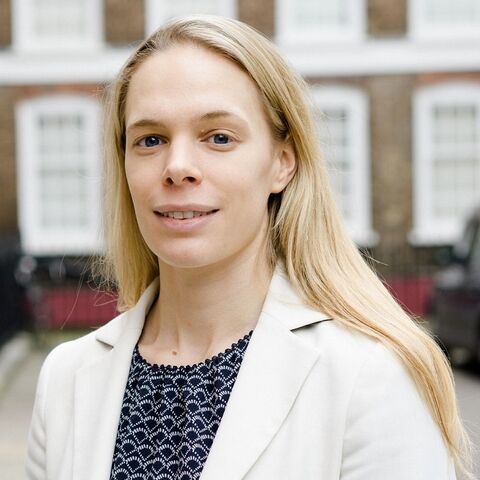
Charlotte Alldritt
Charlotte is Director of the Centre for Progressive Policy. Previously Charlotte was Director of Public Services and Communities at the RSA, where she also ran the Inclusive Growth Commission – chaired by Stephanie Flanders – and City Growth Commission – chaired by Lord Jim O’Neill. Before joining the RSA, Charlotte was a Senior Policy Advisor to the Deputy Prime Minister, Rt Hon Nick Clegg MP, working on immigration, energy and housing.

Thomas Aubrey
Thomas is founder of Credit Capital Advisory and was director of CPP’s predecessor, the Centre for Progressive Capitalism. He previously ran credit and economic analytics businesses serving as the managing director of Fitch Solutions and Thomson Datastream. He has written widely on financial and economic issues including Profiting from Monetary Policy (Palgrave 2012) and co-authored Prediction Markets: The end of the regulatory state? (2007) with Professor Frank Vibert.

Nikki Bedi
Nikki is a television and radio broadcaster with a passion for making arts and culture accessible. She currently curates, writes and presents The Arts Hour on the BBC World Service, their flagship arts and culture programme, which once a month becomes The Arts Hour On Tour, a show that travels across the globe to different countries to bring the hottest names, talents and issues to the airwaves and to 75 million listeners. Nikki has been seen on TV presenting BBC2’s topical weekly arts and entertainment programme, Front Row and as a brilliant panellist on QI (BBC2).A regular interviewer and presenter on BBC Radio 4’s Loose Ends, Nikki describes herself as ‘glocal’ as her work is both global and local. Born to an Indian father and English mother, Nikki began her career in Mumbai as both a stage and film actress and worked with some of India’s finest directors. Her foray into the world of presenting began when Channel 4 gave her a talk show, Bombay Chat and its success prompted Star TV in Asia to give her a primetime chat show called Nikki Tonight which became Asia’s most widely viewed and also most controversial show.
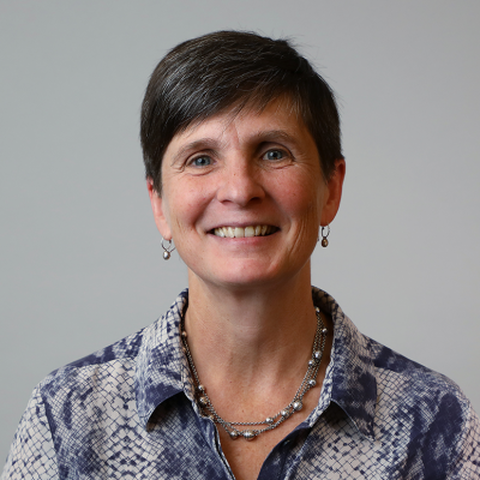
Jo Bibby
Jo Bibby is Director of Health at the Health Foundation. Jo is responsible for developing and leading the Foundation’s Healthy Lives strategy to address the wider social and commercial determinants of health. Joining the Foundation in November 2007, Jo initially led the development of the Foundation’s influential portfolio of work in patient safety and person-centred care. Jo has worked in health care at local and national level for 25 years, including 10 years at the Department of Health. As Head of NHS Performance, she oversaw the implementation of the policy agenda set out in the NHS Plan. At the NHS Modernisation Agency, Jo led an international quality improvement initiative – Pursuing Perfection. Previously, Jo was the Director for the Calderdale and Kirklees Integrated Service Strategy where she led a major service reconfiguration programme to deliver improvements in quality, safety and patient experience. Between June 2013 and March 2017, Jo served as a non-executive director of Salford Royal NHS Foundation Trust. Jo has a PhD in Medical Biophysics.

Zoë Billingham
Zoë is Head of Policy and Engagement at the Centre for Progressive Policy. With previous experience spanning the private and public sector, Zoë most recently worked at Lazard, advising both large scale and startup technology, media and telecoms clients on M&A situations. Zoë has also held several roles in government including as Senior Policy Adviser at HM Treasury, advising the Chancellor on EU economic policy and as Economic Policy Adviser to the Deputy Prime Minister during the coalition government.

David Boyle
David Courtney Boyle is an author and journalist who writes mainly about history and new ideas in economics, money, business, and culture. He conducted an independent review for the Treasury and the Cabinet Office on public demand for choice in public services which reported in 2013. He is co-founder and policy director of Radix, which he characterized in 2017 as a radical centrist think tank and has been co-director of the mutual think tank New Weather Institute.
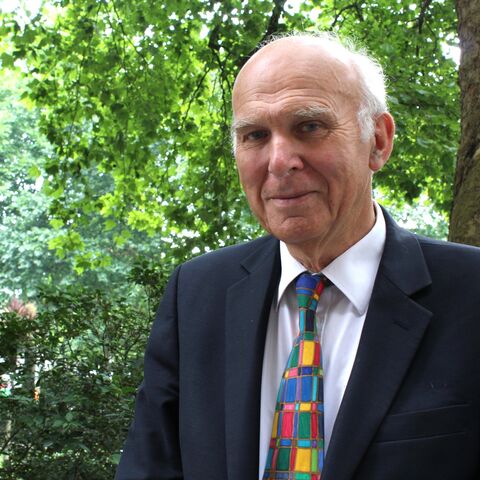
Rt Hon Sir Vince Cable
Sir Vince Cable is the former MP for Twickenham (1997-2015, 2017-2019) and the former leader of the Liberal Democrats from 2017 to 2019. During the Coalition Government, he was Secretary of State for Business, Innovation and Skills and President of the Board of Trade. He was responsible for the creation of the world’s first ever Green Investment Bank, support for young people through apprenticeships and the promotion of socially responsible capitalism. Previously, Vince was the Chief Economist for Shell International, Head of the Economics programme at Chatham House and Special Advisor to the former Commonwealth Secretary General, Sir Sonny Ramphal.

Neil Carberry
Neil Carberry was appointed as Chief Executive of the Recruitment and Employment Confederation in June 2018 having been managing director at the Confederation of British Industry, leading the CBI’s work on the labour market, skills, energy and infrastructure. In 1999, Neil began his career in recruitment working for executive search firm Fraser Watson before doing a post-graduate degree in Human Resources at the London School of Economics and joining the CBI in 2004. He is a member of the council of the conciliation service ACAS and of the Low Pay Commission where he helps guide pay policy in the UK. He is also the chair of a small primary academy trust in Oxfordshire.

Carlos Castro
Carlos Castro is the Deputy Mayor of Lisbon responsible for urban waste, civil protection, the fire department, sports and public spaces. Previously he was the resilience officer for the ‘100 Resilient Cities Network' by the Rockefeller Foundation, and held roles as political advisor and journalists.

John Cope
John Cope is CBI’s Head of Education & Skills, leading CBI’s work across education, from the early years through to primary, secondary, as well as colleges, universities, and lifelong learning. Alongside education & skills, John chairs the CBI’s LGBT+ Network. Originally from the Midlands, most of John’s career prior to joining CBI was spent in policy and communications, working on issues affecting social justice, education, and young people. This includes advising three past education ministers, and being a founding director of the Education Policy Institute. Outside of work, John is a governor of a special educational needs school.

Shirley Cramer
Shirley has been the CEO of the Royal Society for Public Health since 2013, working across the UK and internationally to improve and protect the public’s health and wellbeing. She chairs the ‘People in UK Public Health’ advisory group, a cross government committee which advises on the future of the workforce for the public’s health and she is Vice Chair of the Public Health System Group in England. Prior to this she has been a CEO in education charities in both the USA and UK and a non – executive in the public and voluntary sectors. She is a member of the Global Advisory Board of the Robert Wood Johnson Foundation in the US, she chairs think tank, British Future and is a trustee of Alzheimer’s Research UK.

Miatta Fahnbulleh
Miatta is the Chief Executive of the New Economics Foundation and has been at the forefront of generating new ideas on reshaping our economy inside government and out. Prior to joining NEF she was Director of Policy & Research at the Institute of Public Policy Research. Before this, she has worked at senior levels for the Leader of the Opposition, the Cabinet Office, and the Prime Minister’s Strategy Unit. Her work has included the development of policies from devolution to local economic growth, housing, energy and climate change and transport, driving forward the Government’s economic devolution agenda in England, and localism and local economic growth. Miatta has a Masters and PhD in economic development from the LSE and a BA in PPE from Oxford.
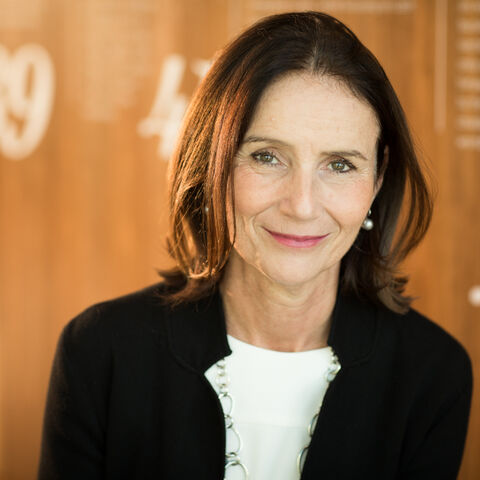
Carolyn Fairbairn
Dame Carolyn Fairbairn has been Director General of the CBI since November 2015. An economist by training, her career spans business, government and media. She was a partner at McKinsey, and Director of Strategy at the BBC then at ITV. She started out as a journalist at the Economist and was a member of the No 10 policy unit from 1995-7. She has held NED board positions at FTSE firms Lloyds Banking Group, The Vitec Group and Capita plc, and also at the Competition and Markets Authority, the UK Statistics Authority and, from 2008-11, the Financial Services Authority.

Sam Fankhauser
Professor Sam Fankhauser is Director of the Grantham Research Institute on Climate Change and the Environment at the London School of Economics. As part of this role, he also directs the Centre for Climate Change Economics and Policy (CCCEP) and the Place-based Climate Action Network (PCAN), which are both funded by the UK Economic and Social Research Council (ESRC). Outside academia, Sam is a Non-Executive Director of CDC Group, the UK’s foremost development finance institution, and an Associate Director at economics consultancy Vivid Economics. He was an inaugural member of the UK Committee on Climate Change, on which he served from 2008 to 2016. Before joining LSE, Sam worked at the European Bank for Reconstruction and Development (EBRD), the World Bank and the Global Environment Facility. He has studied economics at the University of Berne (Switzerland), the London School of Economics and University College London.
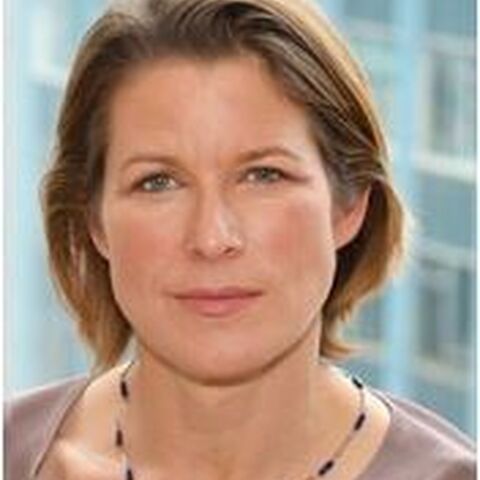
Stephanie Flanders
Stephanie Flanders is the Head of Bloomberg Economics & former chair of the Inclusive Growth Commission. Stephanie a seasoned economic commentator and policy practitioner. Throughout her career she has worked in organisations in both capacities in the UK and in the US. She is a Senior Executive Editor and the head of Bloomberg Economics. Before that Stephanie was a Chief Market Strategist for the UK and Europe for J.P. Morgan Asset Management. From April 2008 to November 2013 she was the BBC’s Economics Editor. She has also presented a BBC2 series, Masters of Money, and her own Radio 4 programme, Stephanomics. She joined the BBC as Newsnight’s Economics Editor in October 2002. Stephanie is a former speechwriter and senior advisor to US Treasury Secretary Lawrence H. Summers in the Clinton Administration, where she was involved in the management of emerging market crises and other major economic issues from 1997 to 2001.
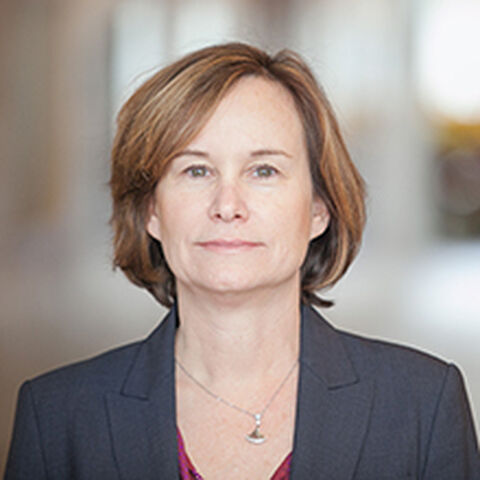
Caroline Freund
Caroline Freund is Global Director of Trade, Investment and Competitiveness at the World Bank. Previously she was a Senior Fellow at the Peterson Institute for International Economics. She has also worked as Chief Economist for the Middle East and North Africa at the World Bank, after working for nearly a decade in the international trade unit of the research department. Freund began her career in the international finance division of the Federal Reserve Board and spent a year visiting the research department of the IMF. She has published extensively in academic journals and is the author of Rich People Poor Countries: The Rise of Emerging Market Tycoons and their Mega Firms. She is a US national and received a PhD in economics from Columbia University.
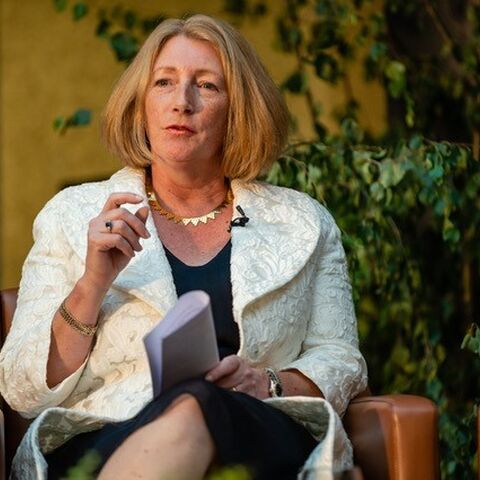
Sue Garrard
Sue is a leading expert in developing sustainability strategy in major companies, aligning it with business objectives, and embedding it across the business. She is an independent advisor on sustainability strategy, working with major businesses that are seeking to step up on their sustainability ambitions and performance. She complements her client work by advising three sustainability related organisations on a pro-bono basis. Until Autumn 2018, she was EVP Sustainable Business and Communications at Unilever. At Unilever, Sue was responsible for leading and embedding the company’s ambitious USLP (Unilever Sustainable Living Plan) into the business and ensuring delivery against its 70-plus time bound targets. She was also responsible for teams in 180 markets who engage with Governments and key external stakeholders; lead employee engagement; handle the media; and are accountable for issues and crisis management. She was part of the four-strong executive team that led the rebuttal of the hostile takeover bid by Kraft Heinz in 2017. Sue was responsible for establishing sustainability as a driver of brand growth. By the end of 2018 its ‘Sustainable Living Brands’ were growing 67% faster than its other brands and represented 70% of the company’s growth. Sue is one of the founders of the independent not for profit organisation, Blueprint for Better Business, and remains a Trustee. She is a Fellow at the University of Cambridge Institute for Sustainability Leadership, a Visiting Fellow at Cranfield School of Business Management, and a Fellow of the RSA. Sue’s earlier career includes two spells in the public sector, and roles in advertising and public affairs agencies. Sue’s role prior to Unilever was as a Director General at the Department of Work and Pensions, where she led customer strategy and communications.
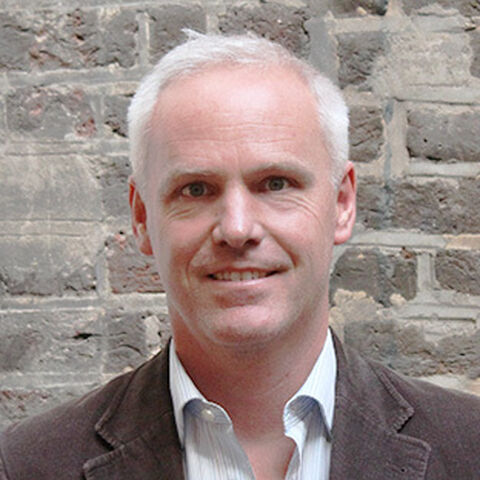
Tony Greenham
Tony is CEO of South West Mutual, a values-led regional mutual challenger bank. He was previously Director of Economics at the RSA (Royal Society of Arts, Manufactures and Commerce) and Head of Financial Reform at the New Economics Foundation. He is author and co-author of many books and reports including ‘People-Powered Prosperity’ and ‘Where Does Money Come From?’. After an early career in investment banking, Tony co-founded an e-marketing firm and a mobile phone recycling company before becoming an economic policy analyst. He is a Senior Fellow of the Finance Innovation Lab, a Fellow of the Institute of Chartered Accountants and a sustainability adviser to Lion Trust Asset Management, a leading ESG investment manager.

Rose Grayston
Rose Grayston is Shelter's Policy Manager. She is leading on Shelter's work on how to drive up the supply of genuinely affordable homes where they are needed most. Her recent publications make the case for reforming planning rules and the land market so that communities will see more of the benefits from new housing. Prior to joining Shelter she worked for a London-based housing association, developing specialist housing affordable to construction apprentices – on the theory that fixing the housing crisis will be impossible if the people we expect to build London's homes can’t afford to live here.

David Halpern
David Halpern is the Chief Executive of the Behavioural Insights Team. He has led the team since its inception in 2010. Prior to that, David was the founding Director of the Institute for Government and between 2001 and 2007 was the Chief Analyst at the Prime Minister’s Strategy Unit. David was also appointed as the What Works National Advisor in July 2013. He supports the What Works Network and leads efforts to improve the use of evidence across government. Before entering government, David held tenure at Cambridge and posts at Oxford and Harvard. He has written several books and papers on areas relating to behavioural insights and well-being, including Social Capital (2005), the Hidden Wealth of Nations (2010), and co-author of the MINDSPACE report. In 2015 David wrote a book about the team entitled Inside the Nudge Unit: How Small Changes Can Make a Big Difference.

William 'Lez' Henry
Professor William ‘Lez’ Henry is Professor of Criminology and Sociology at the University of West London. He has lectured nationally and internationally in the areas of criminology, sociology, anthropology, race, education, ethnicity, youth crime and cultural studies. He has also featured in numerous documentaries and current affairs television and radio programmes, while writing and publishing extensively on the concerns of the African Diaspora in the UK. His current research seeks to understand racialisation as process, with a focus on African/Black History and identity formation across the African diaspora and ‘whiteness as process and praxis’ to evaluate how this form of identity politics impacts all areas of global human activity. He also researches educational underachievement amongst BAME and white working-class children/youth, with a particular emphasis on the links between school exclusions, racial violence, youth violence and gang affiliation. Professor William ‘Lez’ Henry was born in the London Borough of Lewisham of Jamaican Parentage and is the British Reggae Deejay Lezlee Lyrix.
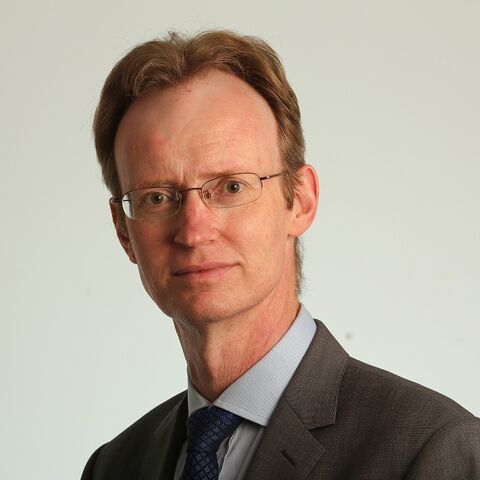
Andrew Hill
Andrew Hill is an award-winning columnist, Associate Editor and Management Editor at the Financial Times. He writes a weekly column on business, strategy and management, as well as contributing longer features and taking part in video discussions and podcasts. He is a member of the FT Editorial Board. Andrew is the author of Ruskinland: How John Ruskin Shapes Our World (Pallas Athene, 2019), a personal exploration of the Victorian polymath’s life, work and enduring influence, and Leadership in the Headlines (FT Publishing, 2016), a selection of his FT columns and insights about how leaders lead.

Julie James AM
Julie James AM is the Minister for Housing and Local Government for Wales. Until she was elected as Assembly Member for Swansea West, Julie was a leading environmental and constitutional lawyer. Prior to this, she was assistant chief executive at Swansea Council. She spent most of her legal career in local government, working as a policy lawyer with the London Borough of Camden before returning to Swansea to work for West Glamorgan County Council and then the City and County of Swansea.
Since being elected Julie sat on the Constitutional and Legislative Affairs Committee, Enterprise and Business Committee and Environment and Sustainability Committee. Julie published the ‘Influencing the Modernisation of EU Procurement Policy’ Report as Chair of the Enterprise and Business Committee’s Procurement Task and Finish Group. Julie also sat as Chair of the Environment and Sustainability Committee’s Common Fisheries Policy Task and Finished Group.
Julie James was appointed Deputy Minister for Skills and Technology in September 2014. In May 2016 Julie was appointed as Minister for Skills and Science. Julie was appointed Leader of the House and Chief Whip on 3 November 2017. On 13 December 2018 Julie was appointed Minister for Housing and Local Government.
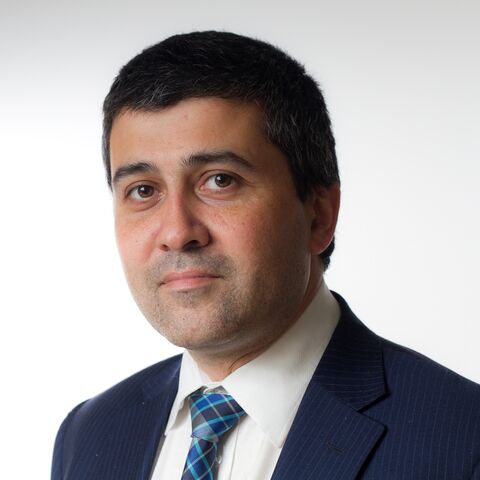
Sunder Katwala
Sunder Katwala is Director of British Future, an independent non-partisan think-tank, which works on identity and immigration, integration and opportunity. By engaging both with those who are anxious about cultural identity and economic opportunity, as well as those who already feel confident about our changing society, British Future seeks to broaden confidence in an welcoming and inclusive shared future. The National Conversation on Immigration was the biggest-ever public consultation on immigration and integration in the UK, working in partnership with the Home Affairs Select Committee. British Future has reshaped debate about public attitudes; helped economic and civic society stakeholders to engage with their target audiences more effectively, and championed practical responses to immigration, integration and identity that can strengthen the common ground. Sunder has previously been an Observer journalist and general secretary of the Fabian Society, and is a regular contributor to national media debates on identity and immigration.
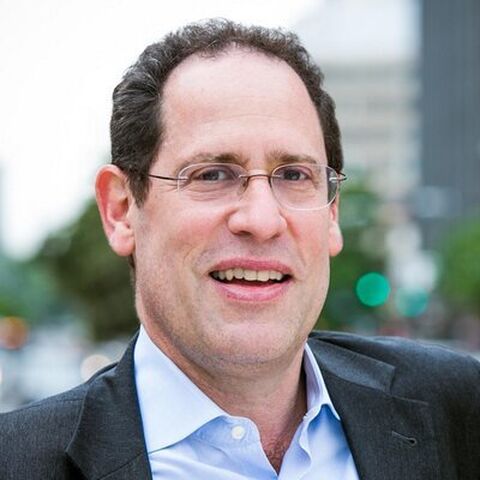
Bruce Katz
Bruce Katz is the Founding Director of the Nowak Metro Finance Lab at Drexel University in Philadelphia and is the coauthor of The New Localism: How Cities Can Thrive in the Age of Populism. Previously he served as inaugural Centennial Scholar at Brookings Institution and as vice president and director of Brooking’s Metropolitan Policy Program for 20 years. He is a member of the RSA City Growth Commission in the United Kingdom and a Visiting Professor in Practice at London School of Economics. Katz previously served as chief of staff to the secretary of Housing and Urban Development and staff director of the Senate Subcommittee on Housing and Urban Affairs. Katz co-led the Obama administration’s housing and urban transition team. He is coauthor of The Metropolitan Revolution, editor or coeditor of several books on urban and metropolitan issues, and a frequent media commentator.
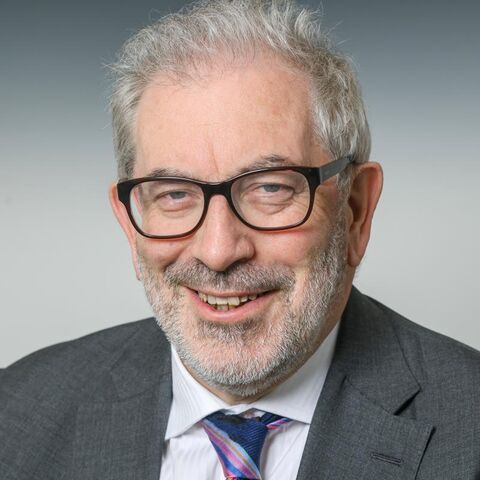
Lord Bob Kerslake
Lord Kerslake is Chair of Peabody, Chair of the London Collective Investment Vehicle (London CIV), Chair of the Centre for Public Scrutiny (CfPS), President of the Local Government Association, Chair of Sheffield Theatres, Chair of the Board of Governors for Sheffield Hallam University, and Chair of Be First, Barking and Dagenham Council’s regeneration company. In addition to this, Lord Kerslake Chairs the UK2070 Commission. The UK2070 Commission, established in July 2018, is an independent inquiry into city and regional inequalities in the UK, set up to conduct a review of the policy and spatial issues related to the UK’s long-term city and regional development. A former Head of the Civil Service, Lord Kerslake led the Department for Communities and Local Government (DCLG) from November 2010, stepping down in February 2015. Prior to this, he was the first Chief Executive of the Homes and Communities Agency. Before joining the Civil Service Lord Kerslake received a knighthood for his services to local government, spending eight years serving the London Borough of Hounslow and then a further 11 years leading Sheffield Council. In early 2015, he was made a life peer, taking the title Baron Kerslake, of Endcliffe in the City of Sheffield.
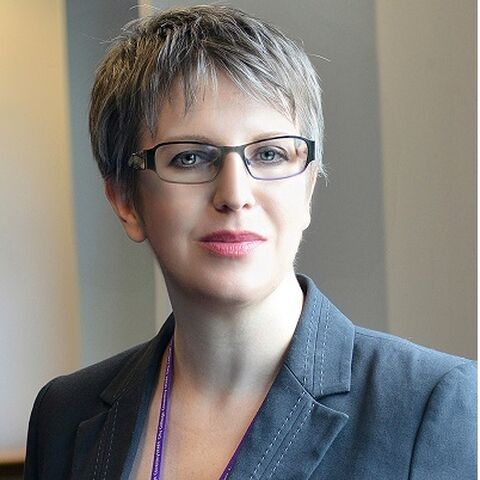
Kirsti Lord
Kirsti joined Association of Colleges as Deputy Chief Executive, Member Services in August 2017. She has 17 years’ experience working in Further Education from Part-Time Lecturer to her most recent role as Acting Principal. The focus of her work since 2008 has been around quality improvement and curriculum design, leading a large department from inadequate to outstanding between 2010 and 2012 and maintained outcomes and student experience at this level until she progressed in 2015. In her most recent college role, Kirsti worked with colleagues to liaise with ESFA, the FE Commissioner’s team and Ofsted to secure removal of both financial and quality notices of concern and to successfully complete a merger in 2017.

Colin Mayer
Colin Mayer is Peter Moores Professor of Management Studies at Oxford University. Colin is an expert on all aspects of corporate finance, governance and taxation, the regulation of financial institutions and the role of the corporation in contemporary society. Colin studied as an undergraduate at Oriel College, Oxford, and received his DPhil from Oxford University in 1981. He was a Harkness Fellow at Harvard University, a Houblon-Norman Fellow at the Bank of England, the first Leo Goldschmidt Visiting Professor of Corporate Governance at the Solvay Business School, Université de Bruxelles, and has had visiting positions at Columbia, MIT and Stanford universities. In 1994, Colin became the first professor at Saïd Business School, and was appointed the Peter Moores Dean of the Business School between 2006 and 2011. He was the first Director of the Oxford Financial Research Centre at the University of Oxford between 1998 and 2005. Colin was a director and chairman of Oxera between 1986 and 2010, and was instrumental in building the firm into what is now one of the largest independent economics consultancies in Europe. He is a director of Aurora Energy Research Limited, an energy modelling company. He has consulted for numerous large corporations and for governments, regulators and international agencies around the world.
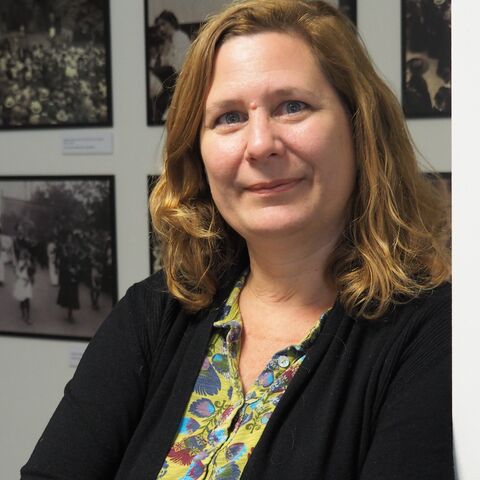
Abigail McKnight
Abigail McKnight is Associate Director and Associate Professorial Research Fellow at the Centre for Analysis of Social Exclusion, London School of Economics. She has researched many features of social mobility including the often overlooked aspect of downward mobility. In a chapter for the 2017 Handbook of Contemporary Education Economics – “Education and social mobility: theory, evidence and policy challenges” she explores how an education ‘arms race’ between the state and wealthy parents has developed in many countries.

Julie McLachlan
Julie McLachlan is Senior Manager - Economic Policy North Ayrshire Council, where she leads the council’s approach to inclusive economic policy. She was part of the team responsible for the award winning North Ayrshire Inclusive Growth Diagnostic undertaken in partnership with the Scottish Government’s Office of Chief Economic Advisor. In addition to this, Julie is playing a pivotal role in developing Scotland’s first approach to Community Wealth Building. Julie has also been instrumental in the development of the Scottish Basic Income Feasibility Study due to report in 2020. Prior to joining North Ayrshire Council, Julie was Head of Place at the Scottish Council for Development and Industry (SCDI), one of Scotland’s leading economic development organisations, which included a secondment to the Ayrshire Growth Deal – Scotland’s first non-city growth deal. Before this Julie was a Policy Officer at the Scottish Government where she worked on several high profile projects including the 2014 Commonwealth Games and city deals. She has an MSc in Global Security from the University of Glasgow and a BA Hons in Politics from the University of Strathclyde.
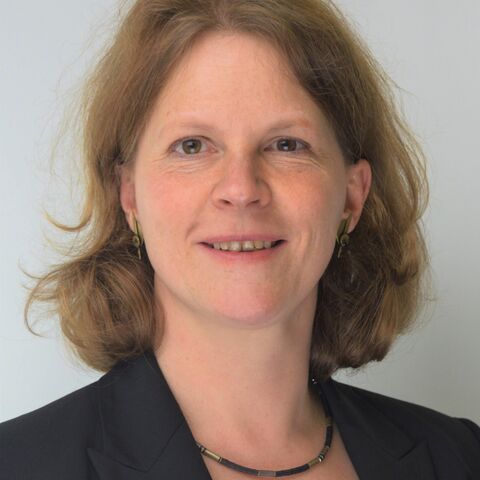
Petra Meier
Petra is a Professor of Public Health at the University of Sheffield where her research focuses on the appraisal and evaluation of public health policy. She founded the Sheffield Alcohol Research Group, a leading international centre for alcohol policy modelling research and is a Director of the SIPHER Consortium. SIPHER is a major new UK Prevention Research Partnership funded initiative that will deliver novel evidence of the costs and benefits of the complex, interlinked and long-term health and other consequences of public policy decisions in areas such as inclusive growth and housing.
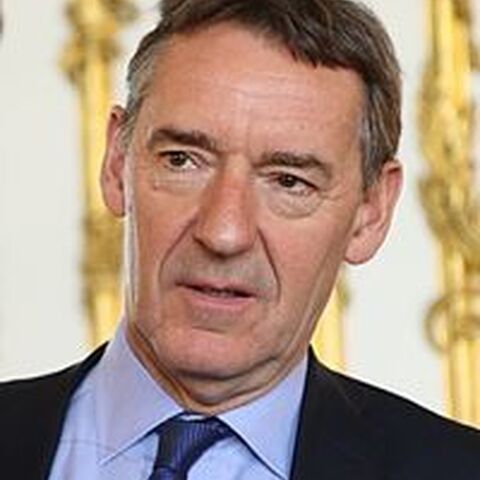
Lord Jim O'Neill
Lord Jim O’Neill is the vice-chair of the Northern Powerhouse Partnership, a member of Shelter Social Housing Commission and the Chair of Chatham House. He worked for Goldman Sachs from 1995 until April 2013, spending most of his time there as Chief Economist, where he became best known for coining the term BRIC. He chaired the Cities Growth Commission in the UK until October 2014 when it provided its final recommendations. He led an independent review into antimicrobial resistance (AMR) for David Cameron from late 2014 to September 2016 and remains focused on this challenge. Since leaving government in September 2016, having been Commercial Secretary to the Treasury, Jim moved to the crossbenches of the House of Lords.
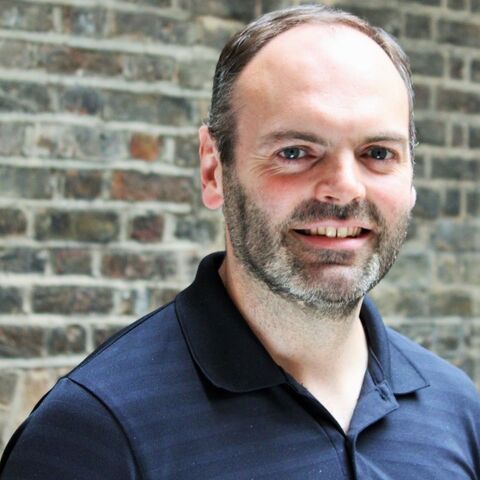
Anthony Painter
Anthony Painter is the Chief Research and Impact Officer at the Royal Society of Arts, and leads the award winning Research and Impact team and its three teams focusing on economy, education, public services and communities. His own research focuses on a range of policy issues including the impact of new technology on the economy and society and institutional change. He is author of three books, most recently 'Left without a future? Social Justice in anxious times' and a number of high impact policy and research reports such as “Creative citizen, creative state: the principled and pragmatic case for a Universal Basic Income”.
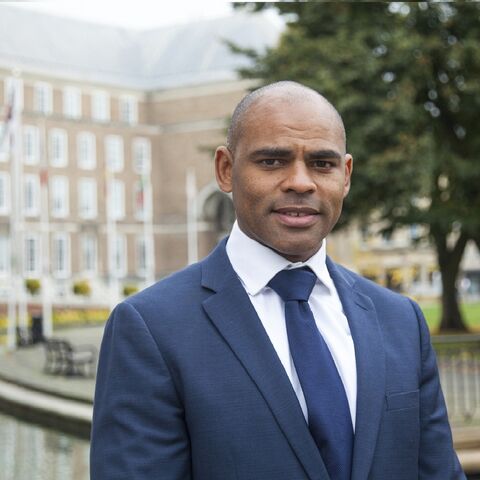
Marvin Rees
Marvin Rees is the Mayor of Bristol. Throughout his career Marvin has worked in diverse areas. Beginning at a UK international Christian aid agency and other voluntary sector roles he then developed his skills in Washington D.C. helping to organise the response of faith-based organisations to President Bill Clinton's Welfare Reform Bill. His career then encompassed Public Health while working as a programme manager for the NHS focused on delivering Race Equality in Mental Healthcare for Bristol, South Gloucestershire and North Somerset. Marvin also worked in Radio broadcasting, becoming a Broadcast Journalist for the BBC Radio Bristol, and still occasionally features on major and local community radio broadcast stations such as BBC Radio 5 Live, UJIMA and Bristol Community FM. His determination to improve opportunities for young people from disadvantaged backgrounds led him to found the City Leadership Programme in 2012, which invests in the personal development and training for future leaders, and continues as its director. Marvin himself is a graduate of Operation Black Vote and the Labour Future Candidate Programme. When he was elected Mayor of Bristol in May 2016 he became the first ever Mayor of Black African-Caribbean descent of a European City.
He has developed the ‘City Office’ for Bristol, bringing together the organisations and groups with the largest footprint in the city to better work together and coordinate solutions to the problems facing the city as a whole.
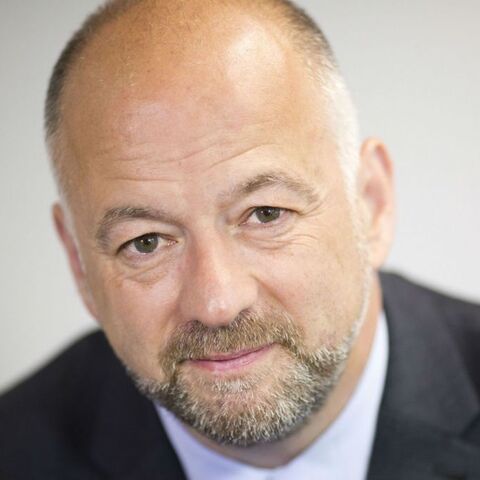
Kevin Rowan
Kevin Rowan is Head of Organisation and Services Department (OSD) at TUC. Kevin is also Director of unionlearn, the TUC’s learning and skills organisation responsible for union learning, the Union Learning Fund (ULF) and TUC Education; the TUC’s extensive programme of workplace representatives’ training. Kevin represents the TUC on the Regional Skills Partnership, the Regional ERDF Programme Monitoring Committee and is a board member of NORCARE and Equality North East and a member of the North East Economic Forum.
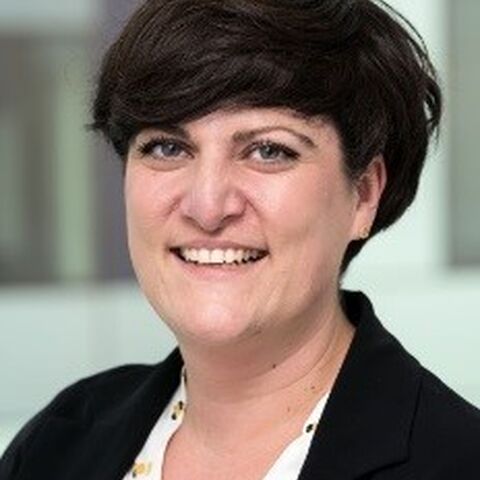
Joanna Rowelle
Joanna is a Director at Arup London where she leads the City Economics and Planning team and is the Deputy Leader for Integrated City Planning. Before joining Arup, Joanna worked for the Mayor of London where she worked in economic policy and then led the regeneration department through the London Olympics in 2012. Joanna leads city scale projects at Arup on major regeneration, funding and financing, infrastructure business cases, masterplans and strategic plans notably in the UK, Australia and China. She is a Fellow of the Royal Society of the Arts and a Member of the Institute of Economic Development and the Institute of Leadership and Management and on the Board of a youth charity in London.

Lord David Sainsbury
David Sainsbury read History and Psychology at King’s College, Cambridge and received an M.B.A. from the Columbia Graduate School of Business in New York. He was Finance Director of J. Sainsbury plc from 1973 – 1990 and Chairman from 1992 – 1998. David Sainsbury became Lord Sainsbury of Turville in October 1997 and was appointed Minister of Science and Innovation from July 1998 until November 2006. He is the founder of the Gatsby Charitable Foundation, and founded and chairs the Institute for Government. In 2007 he produced a review of the Government’s science and innovation policies, “The Race To The Top” and in May 2013 published “Progressive Capitalism: How to Achieve Economic Growth, Liberty and Social Justice”. He was elected Chancellor of the University of Cambridge in October 2011.

Will Tanner
Will Tanner is the Director of the campaigning think-tank Onward. He previously advised the Prime Minister Theresa May between 2013 and 2017, as a Special Adviser in the Home Office and as Deputy Head of Policy in 10 Downing Street. He has also previously worked for the leading communications firm, Portland, and for the independent think-tank, Reform.
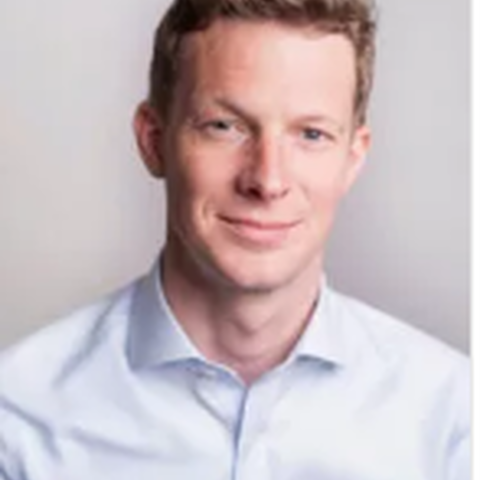
James Turner
James is the Chief Executive of the Sutton Trust and has been in post since February 2019. Prior to that, James was Deputy CEO of the Trust’s sister charity, the Education Endowment Foundation. He also led the Trust’s £135m bid to set up the EEF in 2011, was its interim CEO and served as a founding Trustee. James is also a trustee of The Brilliant Club, the Centre for Homelessness Impact, and a governor of a comprehensive school in the East Midlands, where he lives.

Richard Vize
Richard Vize has been a commentator on public policy and public services reform for more than 25 years. He is a columnist for Guardian Society, contributes to the British Medical Journal and works with a range of organisations across health and local government. Richard is a former Editor of both Health Service Journal and Local Government Chronicle, was Managing Director Media at Dods Parliamentary Communications and Head of Communications at regulator Ofsted. He and his teams have won a number of awards. He is a trustee of the whistleblowing charity Protect. Richard’s passions are photography, independent travel and political history.

Dr Carolyn Wilkins OBE
Carolyn is currently the Chief Executive at Oldham Council and the Accountable Officer for NHS Oldham CCG. She is passionate about the role public services have in improving life chances for people and has taken forward a wide reaching programme of reform and integration of services in order to deliver significantly better outcomes. She undertakes the lead chief executive role for Greater Manchester on a range of issues including for Safe and Stronger Communities portfolio. She is the architect for Greater Manchester Leadership and Workforce Development Framework which aims to support the growth of a community of skilled, connected leaders from all sectors in the City Region. She is the lead chief executive for Population Health overseeing the wellbeing and prevention agenda for Greater Manchester. In addition, she is the Chair of the Oldham Maggie’s Fundraising Board and co-chair of the GM Cancer Board. She was appointed to the NHS Assembly in March 2019.

Michael Wood
Michael Wood is the NHS Confederation's Head of Health Economic Partnerships. Prior to this he was the local growth adviser to the NHS during which he worked as deputy local growth consultant for the Higher Education Funding Council for England (HEFCE). Before that, he was senior European policy manager at the NHS European Office for more than seven years. He has also worked at the Parliamentary and Health Service Ombudsman and for a Member of the European Parliament in Brussels. Michael has extensive experience both within and outside the health sector. He has worked both nationally and locally with the range of NHS organisations for several years. As Head of Health Economic Partnerships, Michael is often approached by partner organisations such as local and combined authorities, local enterprise partnerships, universities, further education providers and the voluntary and community social enterprise sector, to discuss closer working with the NHS. He has worked with the national arm’s-length bodies, academic health science networks, clinical commissioning groups, and the range of NHS trusts to bring tangible benefits to the NHS. Michael has a BA (hons) in politics with economics.

Linda Yueh
Professor Linda Yueh is Fellow in Economics, St Edmund Hall, Oxford University and Adjunct Professor of Economics, London Business School. She is also Visiting Professor at LSE IDEAS and Chair of the LSE Economic Diplomacy Commission. Her latest book, The Great Economists: How Their Ideas Can Help Us Today, was The Times’s Best Business Books of 2018.
Programme
- 08:30
-
Registration
- 09:00
-
Levers for change: how to deliver inclusive growth
The UK is at a crossroads. The general election on 12th December will be an opportunity to chart our future: proceeding on the course set out by the latest round of EU negotiations; reopening the terms agreed to then put these to a confirmatory vote, or overturning the referendum result by choosing to remain in the European Union after all. It is an election that it is hoped will break the political stalemate and find a route beyond Brexit. Little can be certain about the outcome, but any long-term political solution must address the economic factors involved in the 2016 vote. We need to build an inclusive economy, driving productivity and shared prosperity – locally and nationally. Peel back the layers of election mudslinging and there is remarkable consensus amongst the parties on the urgent need for inclusive growth (whether this or other similar terms are used).
The case for inclusive growth stretches far beyond Brexit, as the long wake of financial crisis itself compounded decades of deindustrialisation and dislocation. Similarly, the recognition that change is needed for our economic system to work for more than the top 1% is not confined to the UK. There is a vast and growing international movement behind inclusive growth, including from within the business community. This year’s G7 summit, for example, saw a commitment from a group of major international businesses to partner with G7 governments to deliver inclusive growth.
The need to deliver on inclusive growth is paramount and this year’s annual CPP conference is focussed on the levers of change – locally, nationally and internationally.
How can we deliver inclusive growth on the ground? What are the most pioneering local authorities already doing to make inclusive growth a shared vision and reality? What more can be done to maximise the impact of local strategies? What is the role of business in making inclusive growth a reality? How might national government and international institutions need to change if we are to create the macroeconomic conditions for environmentally and socially sustainable economies? How will we know when these have been successful?Speakers
- Charlotte Alldritt, CPP Director
- Lord Bob Kerslake, former Head of the Civil Service and Chair of Peabody
- Dr Carolyn Wilkins OBE, Chief Executive of Oldham Council
- 09:40
-
Twin global goals: creating clean, inclusive growth
Economic inequality and political dislocation have been at the forefront of the global agenda for the last decade. But climate change has also peaked in public consciousness after the impact of Blue Planet, rising civic activism, such as Extinction Rebellion, and increasingly stark warnings from the UN Intergovernmental Panel on Climate Change (IPCC). However, the political debate – just as on inclusive growth – has been largely stuck on determining the nature and legitimacy of the problem, rather than identifying and implementing solutions.
There are signs of change. In recent months we’ve seen action at a community and city level (including Bristol’s proposal to ban diesel cars in certain parts of the city), at a country level (including the UK’s government’s commitment to net zero emissions by 2050) and at a global level (notably through pressure to reduce the production and waste of plastic by several international firms). This is a positive step, but much more needs to be done and fast if we are to prevent rising temperatures and sea levels from having yet more serious, irreversible impact.
How do two of the biggest challenges of our time, delivering on inclusive growth and combating climate change, interact? Can addressing the two agendas be mutually reinforcing and, if so, how do we achieve these twin global goals? Who should bear the cost of change, so that we see a ‘just transition’ to a new model of socially and environmentally sustainable growth? What role can communities, local and national leaders play? How can global institutions, including international finance, support the creation of clean, inclusive economies?Speakers
- Miatta Fahnbulleh, Chief Executive of the New Economics Foundation
- Sam Fankhauser, Director of Grantham Research Institute on Climate Change and the Environment at LSE
- Stephanie Flanders, Head of Bloomberg Economics
- 10:20
-
Coffee break
- 10:40
-
Being good or not being bad – the role of business in driving inclusive growth
‘Big business’ has often been targeted in debates about the reform – or overhaul – of market capitalism. Headline examples of opaque governance, tax evasion, rogue employers, data privacy breaches and a growing gap between rising executive pay and stagnant average worker wages mean that business is often seen as a problem not a solution to inclusive growth. Efforts – however well meaning – to support good causes in the arts, environment or civil society are increasingly met with cynicism.
Have we reached the end of the line on Corporate Social Responsibility? Do attempts to marry moral purpose with the profit motive represent a genuine concern about wider stakeholder interests? Can, and should, all firms strive to do well by doing good as a long-term risk management strategy? What impact would this have in creating inclusive economies, locally, nationally and globally?
What should be our new social contract for business? Is it up to businesses to choose to forgo profit or is it up to government, customers, employees and investors to shape their behaviour? Our panellists and audience will debate all this under the motion ‘This conference believes that businesses should actively pursue the public good.Chair
- Andrew Hill, Associate Editor and the Management Editor at FT
Speakers
- Neil Carberry, Chief Executive of the Recruitment and Employment Confederation
- Sue Garrard, former EVP Sustainable Business and Communications at Unilever
- Colin Mayer CBE, Peter Moores Professor of Management Studies at Oxford University
- 11:35
-
Parallel session: Social justice, social mobility or social semantics: does language matter in achieving change?
Much of our political discourse hangs on the idea of ‘narrative’. Leaders seek to shape their story of what they want to achieve; events often take over and create their own momentum. It matters how policy problems and solutions are framed as to what gets done and how.
The challenge of inclusive growth is not a new one, but it has come to fore in the UK and globally – particularly in the long wake of the financial crisis over a decade ago. During this time, political emphasis to legitimate and effect policy change have included the pursuit of “a balanced economy and a fair society”, “an economy that works for everyone” and a society and economy “for the many, not the few”. Calls persist in parliament for improving life chances, tackling inequalities and “burning injustices” as well as efforts to enable greater social mobility, but these wax and wane in their relative prominence.
Does inclusive growth strive for the same outcomes, or do linguistic differences belie a deeper ideological divide? If we are to deliver inclusive growth in practice, do we need a shared lexicon or just a tighter definition of what it is, and what it is not? Could a shared lexicon bridge political divides, or is tension – whether by nuance or degree – a healthy and inevitable part of the political policy process, at a local and national level? What implications does such tension have for collaboration between cities, countries and/or companies in creating the macro conditions for inclusive economies globally?Chair
- Anthony Painter, Chief Research & Impact Officer, RSA
Speakers
- Julie McLachlan, Senior Manager, Economic Policy at North Ayrshire Council
- Abigail McKnight, Associate Professorial Research Fellow & Associate Director of Centre for Analysis of Social Exclusion at LSE
- Will Tanner, Director of Onward
- James Turner, Chief Executive of the Sutton Trust
- 11:35
-
Parallel session: Increasing healthy life expectancy: a proxy for inclusive growth in action?
The NHS is the ultimate political football and this year’s election campaign has been no different, particularly as the parties try to signal a policy position beyond the overwhelming issue of Brexit: the Conservative Party has committed funding for staff and new hospitals; Labour has promised to remove all aspects of privatisation from the system, in part to eliminate the potential for the NHS being ‘sold’ to the US in any future trade deal.
However, vast evidence – including from CPP’s recent inquiry – shows that social and economic forces such as poverty, crime, housing and skills are the most important determinants of health outcomes in places. Yet policymakers too often neglect them or pay lip service only. With average life expectancy stagnating and health inequalities widening, the nation’s current model of health is simply not working and yet the national conversation is focussed almost wholly on clinical services. Important as these are, the NHS can only do so much.
The CPP’s final report in its year-long health and social care inquiry (published in June 2019) outlined the measures required to move away from the current narrow model of healthcare – largely relating to the work of the NHS - and towards a socioeconomic model of health embedded in all policies and places.
How can we better align investment – within local areas and across government departments – to address the complex interdependencies between work, income, housing, poverty and health? How do we develop the necessary national and local structures, including within NHS England? How can we create appropriate metrics and incentives when it can take years to shift the dial on deeply entrenched, interrelated social and economic issues?Chair
- Richard Vize, Journalist and former Editor of Health Service Journal
Speakers
- Jo Bibby, Director of Health at The Health Foundation
- Shirley Cramer CBE, CEO of the Royal Society for Public Health
- Prof. Petra Meier, Professor of Public Health and Director of SIPHER Consortium at The University of Sheffield
- Michael Wood, Head of Health Economic Partnerships at NHS Confederation
- 12:25
-
Inclusive innovation & innovative inclusion: In conversation with Bruce Katz & Lisbon City Deputy Mayor Carlos Castro.
For years urban policy experts have understood the importance of enterprise in creating thriving local economies. Creating and retaining wealth can be a virtuous circle, attracting greater inward investment and additional employment opportunities. But all too often deprived communities – particularly in urban and coastal towns or the edges of major cities – have struggled to overturn persistent high poverty, low social mobility, weak market demand and growing income, health, education, and wealth inequalities. Efforts to overturn these have often relied upon major cultural regeneration initiatives with significant national funding or other capital regeneration projects that can be a crude and ineffective instrument for deeper and more sustainable social change.
In this session, CPP Director, Charlotte Alldritt will be joined by leading US urban policy expert, Bruce Katz, and Lisbon City Deputy Mayor Carlos Castro to discuss how we can foster local enterprise and build community wealth. It will also explore how we can ensure the impact of high value added innovation in city-regions, university towns or technology clusters can be more inclusive.Chair
- Charlotte Alldritt, CPP Director
Speakers
- Bruce Katz, Founding Director of Nowak Metro Finance Lab at Drexel University, Philadelphia
- Carlos Castro, Deputy Mayor of Lisbon
- 13:15
-
Lunchtime talks - Beyond GDP: Growth, doughnuts and rebellion
The debate about going ‘beyond GDP’ as a measure of economic progress has appeared time and again without seeming to make much progress in practice. Too often attempts to go beyond GDP have gone beyond the economic realm entirely, leaving economists to revert to their traditional tools and metrics.
Measurement of inclusive growth has started to make inroads on this, reflecting a broader assessment of the nature and distribution of prosperity, as well as people’s lived experience of the economy. Since 2011 Inclusive Growth has been a key part of the OECD’s well-being framework for G7 countries, which suggests that inclusive growth act as a bridge between the well-being agenda and traditional GDP focussed policy approaches. Approaches such as Kate Raworth’s Doughnut Economics set social and ecological boundaries on growth, and the logic of the demands of Extinction Rebellion seems to point to degrowth as a conscious strategy to achieve net-zero carbon economies.
So does the fact that inclusive growth includes a measure of GDP per capita make it irreconcilable with ‘beyond GDP’ approaches? Can we talk about well-being without growth? Where does inclusive growth sit in the growth / degrowth debate? Is there a parallel between the shift in economic policy away from ‘growth for growth’s sake’ and the rise of mission-led business and sustainable investment? And last, but not least, how should inclusive growth integrate with net-zero carbon transition strategies and policy?
Speakers
- Tony Greenham, Executive Director at South West Mutual
- 13:35
-
Lunchtime talks - Inclusive growth and identity politics
Identity politics has come to frame much of public debate on how we live in a diverse society, especially on the way we value others and see ourselves. A primary aim of this type of discourse is to tackle injustices faced by different people who identify as part of particular racial, religious, ethnic, sexual, social or cultural group(s). These injustices are caused by imbalances of power and are often associated with a wide range of other social, economic and political inequalities. Inclusive growth is concerned with how we think about tackling entrenched inequalities – whether socially (between different groups and their access to quality employment opportunities, for example) or geographically (between different places). Is there a role for identity politics in helping us to understand and achieve inclusive growth? Or is it too blunt a framework for devising suitably nuanced policy interventions? Are race or gender useful categories to understand under-attainment or youth violence, for example? Where do race, culture and place intersect when it comes to creating inclusive growth? Might inclusive growth be delivered only when class, identity and place are understood as a complex tapestry based on a process of broad engagement, rather than on fixed categories and implied hierarchies?
Speakers
- Professor William 'Lez' Henry, Professor of Sociology & Criminology at West London University
- Professor William 'Lez' Henry, Professor of Sociology & Criminology at West London University
- 14:00
-
Going glocal: empowering resilient communities
Globalisation has lifted millions, if not billions, of people out of poverty. But it has also torn societies apart, leading to political dislocation and the rise of populism. After decades of deindustrialisation, the financial crisis dialled up backlash against globalisation’s discontents. Without new skills or quality job opportunities readily available, the deepening of international trade and production ties has left many people exposed to the global economic elements. The result has been a rise in protectionism and an erosion of trust in domestic governments to respond effectively to shifting economic circumstances and technological change.
To what extent are inclusive growth strategies in developed and developing countries at the mercy of global economic forces? What role can international institutions such as the World Bank and IMF play? How can leaders at a national and local level enhance the resilience of their citizens and communities to global structural economic change? To what extent can local leaders shape their own economic destinies?Chair
- Zoë Billingham, Head of Policy & Engagement at CPP
Speakers
- Caroline Freund, Global Director of Trade, Investment and Competitiveness at the World Bank
- David Halpern, CEO at The Behavioural Insights Team
- Marvin Rees, Mayor of Bristol
- 14:55
-
Parallel session: The power of place: a quiet devolution revolution in adult skills?
The ability of people to reskill and upskill throughout their working lives is more important than ever before. Yet statistics on adult education make for grim reading. Participation in adult learning in England has fallen every year since its 2011 peak. Men in routine and manual occupations – those most at risk from the impact of structural economic change – are the least likely group to have done training. The Adult Skills Budget fell by over a third between 2010 and 2015. By 2016, UK spend on vocational training per employee was half the EU average.
While the introduction of T-levels seeks to establish clearer routes for technical education for young people, adult skills policy continues to lag. The National Retraining Scheme is designed to support workers impacted by the process of automation, but skills shortages - particularly in intermediate and advanced technical skills – have characterised local labour markets have for years, holding down living standards and undermining productivity.
Will the devolution of the Adult Education Budget to mayoral combined authorities and the Great London Authority start to make inroads at a local level? What else is needed if places are to take advantage of the opportunity to tailor local provision? Should this be just the first step towards a fully devolved skills system, and what would this look like? If government spending on adult skills accounts for only 7% of total spend, how can we encourage businesses and individuals to do more?Chair
- Linda Yueh, Fellow in Economics, St Edmund Hall, Oxford University and Adjunct Professor of Economics, London Business School
Speakers- Dr Fiona Aldridge, Director for Policy and Research at Learning and Work Institute
- John Cope, Head of Education and Skills at CBI
- Kirsti Lord, Deputy Chief Executive, Member Services at the Association of Colleges
- Kevin Rowan, Head of Organisation and Services Department at TUC
- Linda Yueh, Fellow in Economics, St Edmund Hall, Oxford University and Adjunct Professor of Economics, London Business School
- 14:55
-
Parallel session: The power of place: accelerating investment in housing & infrastructure
“Now is the time,” said Boris Johnson on the launch of the Conservative Party 2019 election campaign, “to invest in Northern Powerhouse rail, and a metro rail system for the West Midlands”, reiterating his pledge upon taking office to invest in infrastructure and ‘turbocharge’ regional growth.
But while renewed promises of investment in infrastructure are welcome, recent governments of all colours have not had a good track record on delivery. In 2015, for example, 200,000 new starter homes were promised. By 2019 not a single one had been built. The UK continues to lag other OECD countries on sufficient, integrated and suitably maintained infrastructure. This is leading to low productivity, poor connectivity and insufficient affordable housing.
If the political parties are serious about investment in infrastructure, what would be needed to make it happen? Could uplift in land values unleash a wave of new investment? How might this be achieved given the increasingly divided nature of our political system? How is place-based public, private and philanthropic investment already having impact? What else is needed to plan and finance integrated and strategic housing and infrastructure at a local, regional and national level?Chair
- Thomas Aubrey, CPP Adviser
Speakers
- Julie James AM, Welsh Minister for Housing & Local Government
- Rose Grayston, Policy Manager at Shelter
- Joanna Rowelle, Director of Integrated City Planning at ARUP
- 15:45
-
Coffee break
- 16:00
-
Healing the wounds: bridging divides through a shared economy
UK politics has become more and more fractious over the last three and half years, to the point that we can only hope the result of the imminent general election will bring clarity as to how to move forward. Yet the prospect of another hung parliament and tensions within several of the parties – as much as between them – as deep as ever, this seems unlikely. Leave or remain in the European Union, the issue of Brexit will to continue to dominate and divide. If we want to reunite society and create a country in which prosperity is truly shared, inclusive growth will be key.
Are social and culture divides in the UK becoming increasingly entrenched as the Brexit debate continues? What will it take to heal these divides, restore trust and create the macro conditions for shared prosperity?
What must we do to help UK businesses get on the front foot after the general election, particularly given continued uncertainty about our future relationship with the EU?
What must each of the political parties – and parliament – do to ensure the outcome of the general election and any further EU negotiations support the creation of a sustainable, inclusive UK economy? What opportunities and challenges are presented by further devolution in England and to the other devolved administrations within the UK? What can the UK do to shape a global capitalist system that fosters clean, inclusive growth?Speakers
- Carolyn Fairbairn, Director General of CBI
- Sir Vince Cable, former Leader of the Liberal Democrats
- Sunder Katwala, Director of British Future
- Lord Jim O'Neill, Vice-Chair of the Northern Powerhouse Partnership
- 17:00
-
Drinks Reception
Previous Conference
More than 150 people attended last year’s event, with speakers including the OECD’s Gabriela Ramos, Lord Victor Abedowale, and Scotland’s Minister for Finance Ivan McKee. Read our review of last year's conference and watch a short video of our highlights.
Contact
Please email events@progressive-policy.net if you have any questions.